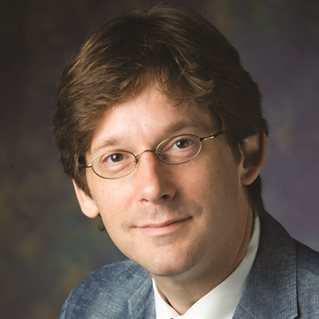William L. Everitt Faculty Scholar Professor Mark Hasegawa-Johnson has been elected as a Fellow of the International Speech Communication Association (ISCA) for contributions to knowledge-constrained signal generation. The ISCA Fellows Program recognizes and honors outstanding ISCA members who have contributed significantly to the science and technology of Speech Communication. Hasegawa-Johnson is a professor of electrical and computer engineering and a researcher at the Beckman Institute for Advanced Science and Technology.
 Spoken-language interfaces enable us to interact with our computers, phones and other devices using spoken commands – for example, through voice assistants such as Siri, Alexa, Google Assistant or Cortana. However, different people speak in different ways, and automatic speech recognition programs can struggle to interpret the variation across accents and dialects. Hasegawa-Johnson seeks “to make spoken-language interfaces available to as many people as possible, regardless of the ways in which they speak.” This is important, he emphasized, because “speech technology is a productivity tool; we want information to be available to everybody, whenever they need it.”
Spoken-language interfaces enable us to interact with our computers, phones and other devices using spoken commands – for example, through voice assistants such as Siri, Alexa, Google Assistant or Cortana. However, different people speak in different ways, and automatic speech recognition programs can struggle to interpret the variation across accents and dialects. Hasegawa-Johnson seeks “to make spoken-language interfaces available to as many people as possible, regardless of the ways in which they speak.” This is important, he emphasized, because “speech technology is a productivity tool; we want information to be available to everybody, whenever they need it.”
Hasegawa-Johnson has worked in several dozen languages. Currently, his team focuses on speech variations caused by dialect, socioeconomic status, age and disability. They must develop sophisticated algorithms to deal with these linguistic challenges, he says: “Making speech recognition, source separation and speech synthesis that work for people with a wide variety of abilities and dialects requires algorithms that can detect important variations from unlabeled data, or in some cases from a small number of labeled examples, and build models that can generalize despite data scarcity.”
“It is a great pleasure to be honored in this way by an organization that has given me so much support for so long,” Hasegawa-Johnson said on becoming an ISCA Fellow (he began publishing in ISCA conferences before he entered his doctoral program). He also credits the community at The Grainger College of Engineering for his success, saying simply: “My research is possible because the students at the University of Illinois are outstanding.”
You can read an in-depth Q&A with Mark Hasegawa-Johnson about his latest research here.
Read the award announcement on the ISCA website.